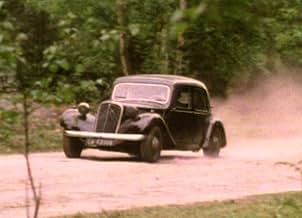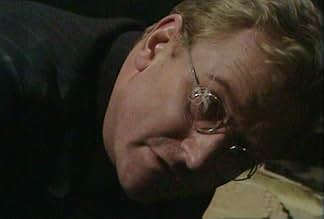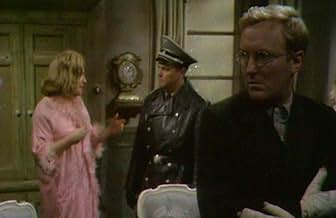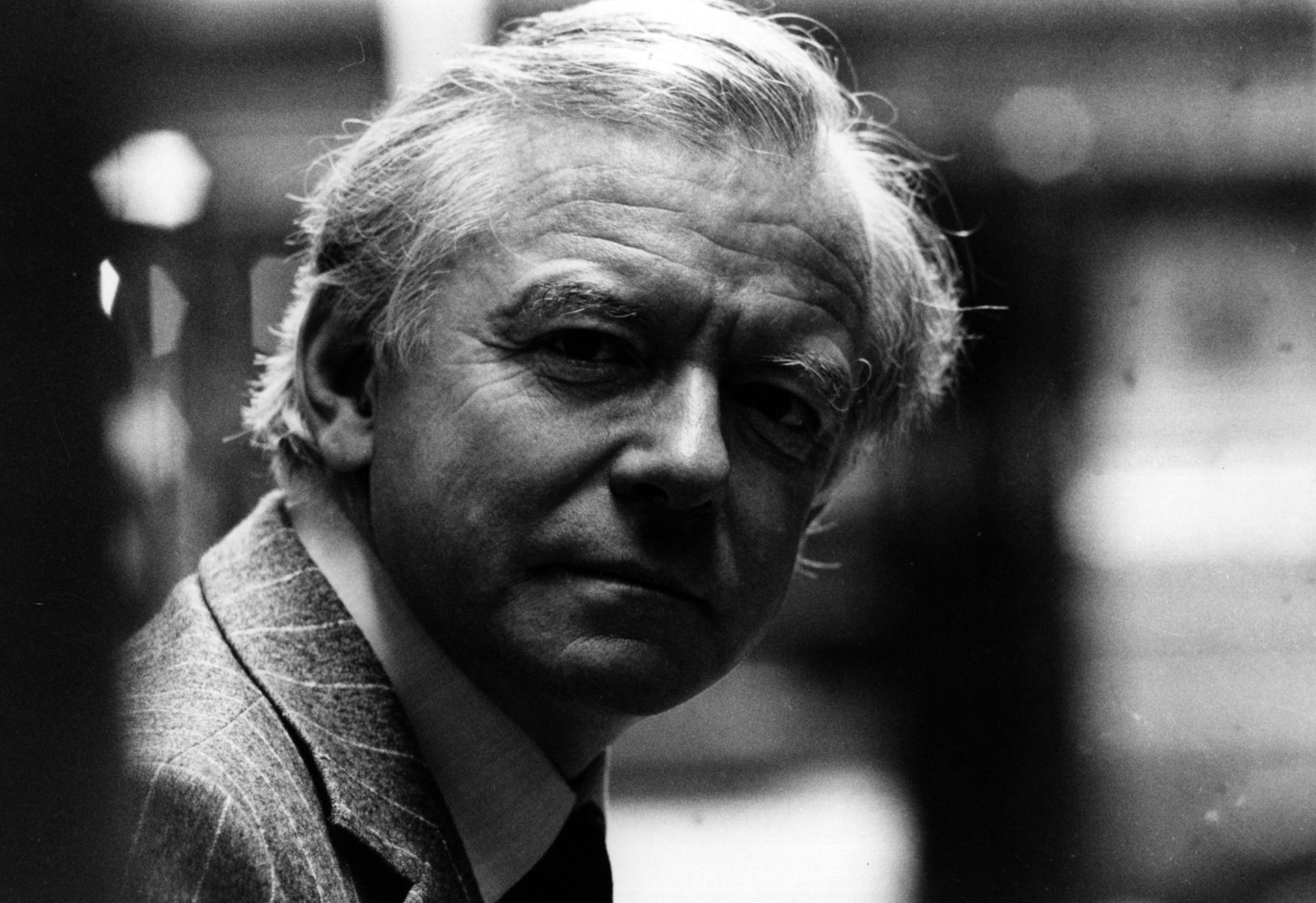Añade un argumento en tu idiomaIn 1942, British pilot Jimmy Briggs crashes his aeroplane in occupied France and immediately finds himself on the run from the Nazis.In 1942, British pilot Jimmy Briggs crashes his aeroplane in occupied France and immediately finds himself on the run from the Nazis.In 1942, British pilot Jimmy Briggs crashes his aeroplane in occupied France and immediately finds himself on the run from the Nazis.
Explorar episodios
Argumento
¿Sabías que...?
- CuriosidadesThe series opens in September 1942, as Squadron Leader James Briggs' Spitfire crashes ten miles north of Bracieux in Occupied France. The series concludes six months later, according to dialogue in The Losers (1970).
- PifiasJimmy Briggs (Alfred Lynch) is shot down in his Spitfire and states he is a member of 44 Squadron. 44 Squadron was in fact a bomber squadron, flying first the Handley Page Hampden and then the Avro Lancaster.
Reseña destacada
Other reviews describe the series in more detail; this is just to add it to my list for the sake of people who haven't heard of it. To say it ought to be more widely known is an understatement - there appears not to be even a HTML fansite devoted to it, and it's a cultural artefact we really ought to have sent into space to impress the hell out of aliens.
That's an exaggeration and it isn't. Considered as a whole the series is very good but flawed, and other shows surpass it in this way or that. But individual episodes really, really might be, in my opinion are, the best television dramas ever made.
If you're a classic TV fan you do need to watch it. If you're a functioning human you ought to watch it. But you'll need a certain amount of patience with it. At the start of the second episode something so jaw-droppingly callous happens you'll probably want to hate the main characters and may want to give up already. Keep going. In a later episode something unbelievably mad and silly happens. Go along with it, or pretend it isn't canon. Worst of all, when the first of the best episodes ends on a cliffhanger and seems to change everything forever, leaving you wondering what the hell's going to happen next - well, you never really find out what happened next, and you're going to wonder if you skipped an episode by mistake, because the next one reverts to the status quo ante with no adequate explanation.
Never mind. You'll get over it. The rest of it is either rather good, very good or great, and there are at least three more best episodes to come.
The best episodes are written by Vincent Tilsley and star Robert Hardy as the tormenting and tormented Abwehr intelligence man Gratz. They are in my opinion the best-written, best-acted, most compelling and most powerfully affecting hours of drama ever on TV; nor have I seen better in film or on the stage. If you haven't seen Manhunt you may only think of Hardy as a solid and fairly charismatic character actor. No. He was a witch. Tilsley had enjoyed a distinguished 15-year career in scriptwriting including episodes of The Prisoner. He appears to have retired a couple of years after this at the age of about 40 and, as far as I can tell, written nothing at all for the next forty years of his life apart from one philosophical novel. Perhaps he decided he would never surpass or equal the work he did here. My symptoms included ice down the neck, not daring to breath, swearing, repeating 'Oh no, oh no' or 'Oh my God' over and over, tears starting, and finding my hands were held up in front of me as if to ward off or defend myself from what was going on on the screen. School textbook passages about ineluctable tragedy and purgation and catharsis and act-or blather about communion with the audience suddenly made sense.
I don't mean to denigrate the rest of the show even by comparison. I found it addictive even before Gratz came on the scene, everyone else is great, plenty of the other scripts are excellent, the ending will haunt me and other moments are unforgettable. All the other main characters are fascinating, especially Nina, an inadvertent femme fatale (played by Cyd Harman, one of the few actresses luminous enough to pull this off) and extremely reluctant heroine who just wants to be left in peace but may do ruthless things to attain it. Doubtless envisaged as a deliberate debunking of the glacially-cool SOE and Resistance heroines of 40s and 50s war films, she spends many episodes on the edge of hysteria or beyond it; may be the most put-upon and mentally-tormented character in TV history; can be selfish and, out of desperation, unreflectingly whorish; can also love and has or finds some kind of steel or integrity at bottom; is finally more consistent and real than any woman I've seen onscreen lately. I will duel anyone who does not have complete sympathy for her.
But the Gratz-Tilsley-Hardy conjunction, a freakish alchemy of perfect character and perfect writer for perfect actor - this bizarre little clown-genius-b*st*rd, this passive-aggressive self-effacing pathologically-loquacious insubordinate Third Reich Columbo or Machiavellian Schweik, this brilliant jumped-up self-made runty provincial nothing with a chip on his shoulder and a semi-Brummie accent whose every word you hang on and who you can't take your eyes off and never know what he's going to do next, who at times comes to stand for or express the pain of... anyone who's ever loved or anyone who's been unloved, or anyone who's felt driven to do terrible things in the name of either, or the sane man in an insane world or the man whom life is driving insane or the divided man in a world of people who seem whole or... I don't know what but call it flawed and tragic humanity for short - this phenomenon simultaneously elevates the rest of the series and derails it. When they realised what they had on their hands the creators (the producer and deviser was Rex Firkin and the script editor Alfred Shaughnessy, both of original 'Upstairs Dowstairs' fame) must have changed their plans to accomodate it; the story changes trajectory somewhat and other strands of it end up neglected or underexplored. Even apart from that I think it would have been a sometimes uneasy mix of series and serial, with disparate (but usually individually good) scripts folded into an ongoing arc less smoothly than tends to be done nowadays; also I think there must have been the problem common to the era of scheduling difficulties, so that secondary actors drift in and out while their characters are replaced by similar ones for a while.
Still you ought to watch it. Warning, you can get hold of the first series on its own but not the second, or the whole thing in one box-set; so if you try the first half and get hooked you'll have to shell out for the whole thing including that again. Chances are you will so just grab the complete series to start with.
That's an exaggeration and it isn't. Considered as a whole the series is very good but flawed, and other shows surpass it in this way or that. But individual episodes really, really might be, in my opinion are, the best television dramas ever made.
If you're a classic TV fan you do need to watch it. If you're a functioning human you ought to watch it. But you'll need a certain amount of patience with it. At the start of the second episode something so jaw-droppingly callous happens you'll probably want to hate the main characters and may want to give up already. Keep going. In a later episode something unbelievably mad and silly happens. Go along with it, or pretend it isn't canon. Worst of all, when the first of the best episodes ends on a cliffhanger and seems to change everything forever, leaving you wondering what the hell's going to happen next - well, you never really find out what happened next, and you're going to wonder if you skipped an episode by mistake, because the next one reverts to the status quo ante with no adequate explanation.
Never mind. You'll get over it. The rest of it is either rather good, very good or great, and there are at least three more best episodes to come.
The best episodes are written by Vincent Tilsley and star Robert Hardy as the tormenting and tormented Abwehr intelligence man Gratz. They are in my opinion the best-written, best-acted, most compelling and most powerfully affecting hours of drama ever on TV; nor have I seen better in film or on the stage. If you haven't seen Manhunt you may only think of Hardy as a solid and fairly charismatic character actor. No. He was a witch. Tilsley had enjoyed a distinguished 15-year career in scriptwriting including episodes of The Prisoner. He appears to have retired a couple of years after this at the age of about 40 and, as far as I can tell, written nothing at all for the next forty years of his life apart from one philosophical novel. Perhaps he decided he would never surpass or equal the work he did here. My symptoms included ice down the neck, not daring to breath, swearing, repeating 'Oh no, oh no' or 'Oh my God' over and over, tears starting, and finding my hands were held up in front of me as if to ward off or defend myself from what was going on on the screen. School textbook passages about ineluctable tragedy and purgation and catharsis and act-or blather about communion with the audience suddenly made sense.
I don't mean to denigrate the rest of the show even by comparison. I found it addictive even before Gratz came on the scene, everyone else is great, plenty of the other scripts are excellent, the ending will haunt me and other moments are unforgettable. All the other main characters are fascinating, especially Nina, an inadvertent femme fatale (played by Cyd Harman, one of the few actresses luminous enough to pull this off) and extremely reluctant heroine who just wants to be left in peace but may do ruthless things to attain it. Doubtless envisaged as a deliberate debunking of the glacially-cool SOE and Resistance heroines of 40s and 50s war films, she spends many episodes on the edge of hysteria or beyond it; may be the most put-upon and mentally-tormented character in TV history; can be selfish and, out of desperation, unreflectingly whorish; can also love and has or finds some kind of steel or integrity at bottom; is finally more consistent and real than any woman I've seen onscreen lately. I will duel anyone who does not have complete sympathy for her.
But the Gratz-Tilsley-Hardy conjunction, a freakish alchemy of perfect character and perfect writer for perfect actor - this bizarre little clown-genius-b*st*rd, this passive-aggressive self-effacing pathologically-loquacious insubordinate Third Reich Columbo or Machiavellian Schweik, this brilliant jumped-up self-made runty provincial nothing with a chip on his shoulder and a semi-Brummie accent whose every word you hang on and who you can't take your eyes off and never know what he's going to do next, who at times comes to stand for or express the pain of... anyone who's ever loved or anyone who's been unloved, or anyone who's felt driven to do terrible things in the name of either, or the sane man in an insane world or the man whom life is driving insane or the divided man in a world of people who seem whole or... I don't know what but call it flawed and tragic humanity for short - this phenomenon simultaneously elevates the rest of the series and derails it. When they realised what they had on their hands the creators (the producer and deviser was Rex Firkin and the script editor Alfred Shaughnessy, both of original 'Upstairs Dowstairs' fame) must have changed their plans to accomodate it; the story changes trajectory somewhat and other strands of it end up neglected or underexplored. Even apart from that I think it would have been a sometimes uneasy mix of series and serial, with disparate (but usually individually good) scripts folded into an ongoing arc less smoothly than tends to be done nowadays; also I think there must have been the problem common to the era of scheduling difficulties, so that secondary actors drift in and out while their characters are replaced by similar ones for a while.
Still you ought to watch it. Warning, you can get hold of the first series on its own but not the second, or the whole thing in one box-set; so if you try the first half and get hooked you'll have to shell out for the whole thing including that again. Chances are you will so just grab the complete series to start with.
- Adrian Sweeney
- 4 ene 2020
- Enlace permanente
Selecciones populares
Inicia sesión para calificar y añadir a tu lista para recibir recomendaciones personalizadas
- How many seasons does Manhunt have?Con tecnología de Alexa
Detalles
- Duración1 hora
- Color
- Relación de aspecto
- 1.33 : 1
Contribuir a esta página
Sugerir un cambio o añadir el contenido que falta

Principal laguna de datos
By what name was Manhunt (1970) officially released in Canada in English?
Responde


































